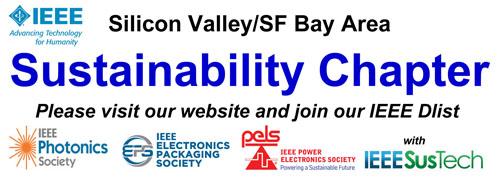Sustainable Alternative Materials to Plastics in Electronics
-- replacing conventional plastics, greener alternatives, environmental footprint, bioplastics for electronics ...

Plastic production has outgrown most other manmade materials, with more than 99% of them being petroleum-based and nonbiodegradable. Conventional plastics are difficult to recycle and persist in the environment for hundreds of years, causing great environmental concerns. In addition, the dependence on crude oil makes the plastics industry unsustainable and renders the plastics market vulnerable to oil price volatility. Therefore, there is a growing interest in developing sustainable alternatives to conventional plastics. Particularly, the electronics industry is making a switch to greener alternatives to reduce greenhouse gas emissions, lower product environmental footprints, and build positive marketing image. Here, we present a perspective on the advancement of bioplastic sustainable alternatives and the challenges and advantages associated with their potential use in electronics.
Date and Time
Location
Hosts
Registration
-
 Add Event to Calendar
Add Event to Calendar
Loading virtual attendance info...
Speakers
 Yael Vodovotz of Ohio State University
Yael Vodovotz of Ohio State University
Sustainable Alternative Materials to Plastics in Electronics
Plastic production has outgrown most other manmade materials, with more than 99% of them being petroleum-based and nonbiodegradable. Conventional plastics are difficult to recycle and persist in the environment for hundreds of years, causing great environmental concerns. In addition, the dependence on crude oil makes the plastics industry unsustainable and renders the plastics market vulnerable to oil price volatility. Therefore, there is a growing interest in developing sustainable alternatives to conventional plastics. Particularly, the electronics industry is making a switch to greener alternatives to reduce greenhouse gas emissions, lower product environmental footprints, and build positive marketing image. Here, we present a perspective on the advancement of bioplastic sustainable alternatives and the challenges and advantages associated with their potential use in electronics.
Biography:
Dr. Yael Vodovotz received her B.S. in food science from the University of Illinois, her M.S. in food science from the University of British Columbia, and her Ph.D. degree from the University of Massachusetts. Following her doctoral degree, Yael held a postdoctoral position at NASA as part of a joint effort between University of Houston and NASA-Johnson Space Center where she worked on various aspects of the Advanced Life Support food system as well as teaching at the University of Houston. Her NASA work continued as an Assistant Professor at Baylor Medical School, part of the National Space Biomedical Research Institute. She joined The Ohio State Department of Food Science and Technology as an Assistant Professor in 2000, and is currently a Professor.
Dr. Vodovotz has been working on physico-chemical and molecular properties of foods with an emphasis on carbohydrate systems and functional foods using techniques borrowed from polymer and materials sciences. She has completed over 7 clinical trials with functional foods as part of an interdisciplinary team. Dr. Vodovotz has over 70 publications.
Address:Columbus, United States

